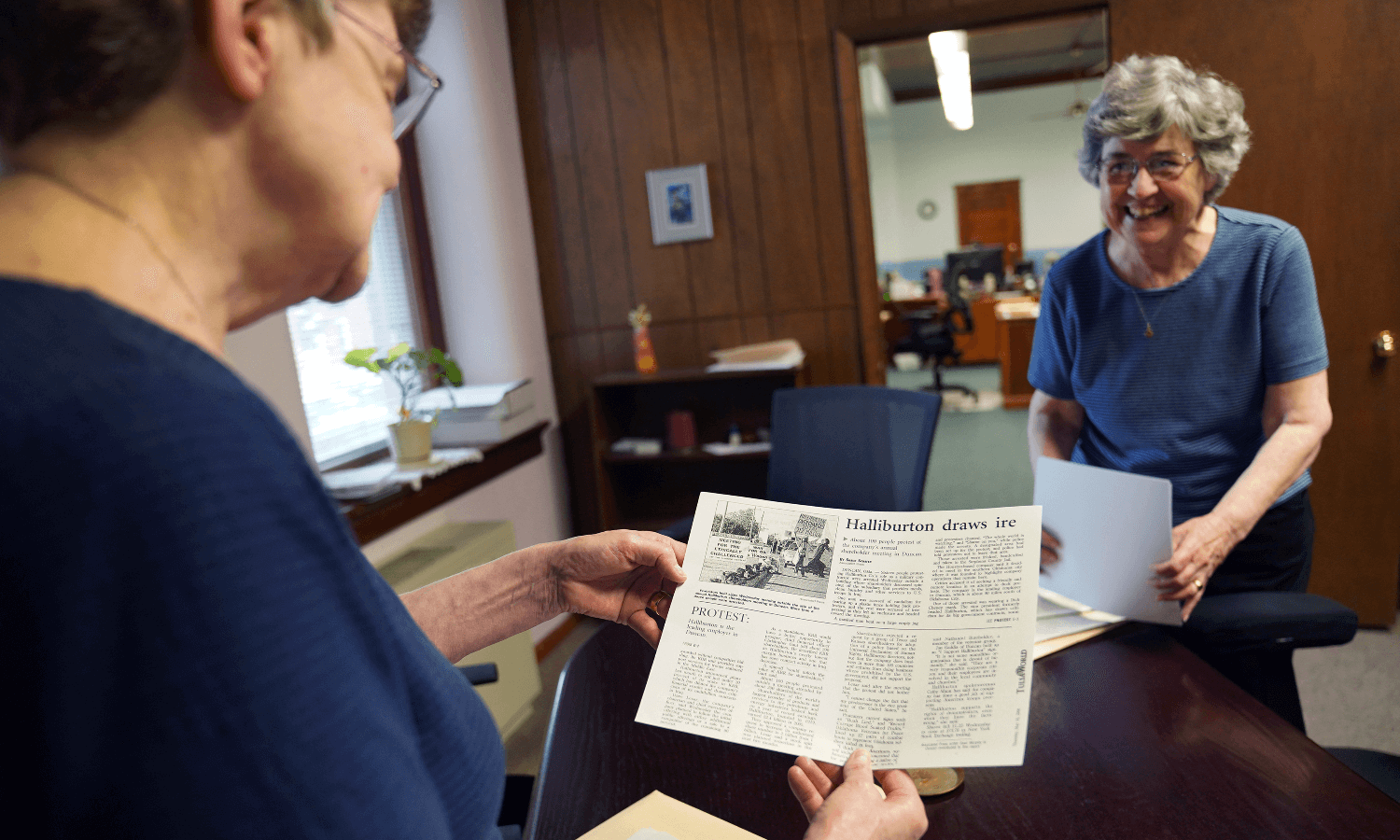Faith-based shareholder activism dates back to 1970s
Up until the 1990s, the nuns had few investments. That changed as they began to set aside money to care for elderly sisters as the community aged.
“We decided it was really important to do it in a responsible way,” said Sister Rose Marie Stallbaumer, who was the community’s treasurer for years. “We wanted to be sure that we weren’t just collecting money to help ourselves at the detriment of others.”
Faith-based shareholder activism is often traced to the early 1970s, when religious groups put forth resolutions for American companies to withdraw from South Africa over apartheid.
In 2004, the Mount St. Scholastica sisters joined the Benedictine Coalition for Responsible Investment, an umbrella group run by Sister Susan Mika, a nun based at a Texas monastery who has been working in the field since the 1980s.
The Benedictine Coalition works closely with the Interfaith Center for Corporate Responsibility, which acts as a clearinghouse for shareholder resolutions, coordinating with faith-based groups—including dozens of Catholic orders—to leverage assets and file on social justice-oriented topics.
The Benedictines have played a key role at ICCR for years, said Tim Smith, a senior policy advisor for the centre. It can be discouraging work, where the needle only moves slightly each year, but he said the sisters “have the endurance of long-distance runners.”
The resolutions rarely pass, and even if they do, they’re usually non-binding. But they’re still an educational tool and a means to raise awareness inside a corporation. The Benedictine sisters have watched over the years as support for some of their resolutions has gone from low single digits to 30% or even a majority.
Gradually environmental causes and human rights concerns have swayed some shareholders, even as a growing backlash foments against investments involving ESG (environmental, social and governance concerns).





















Discussion about this post